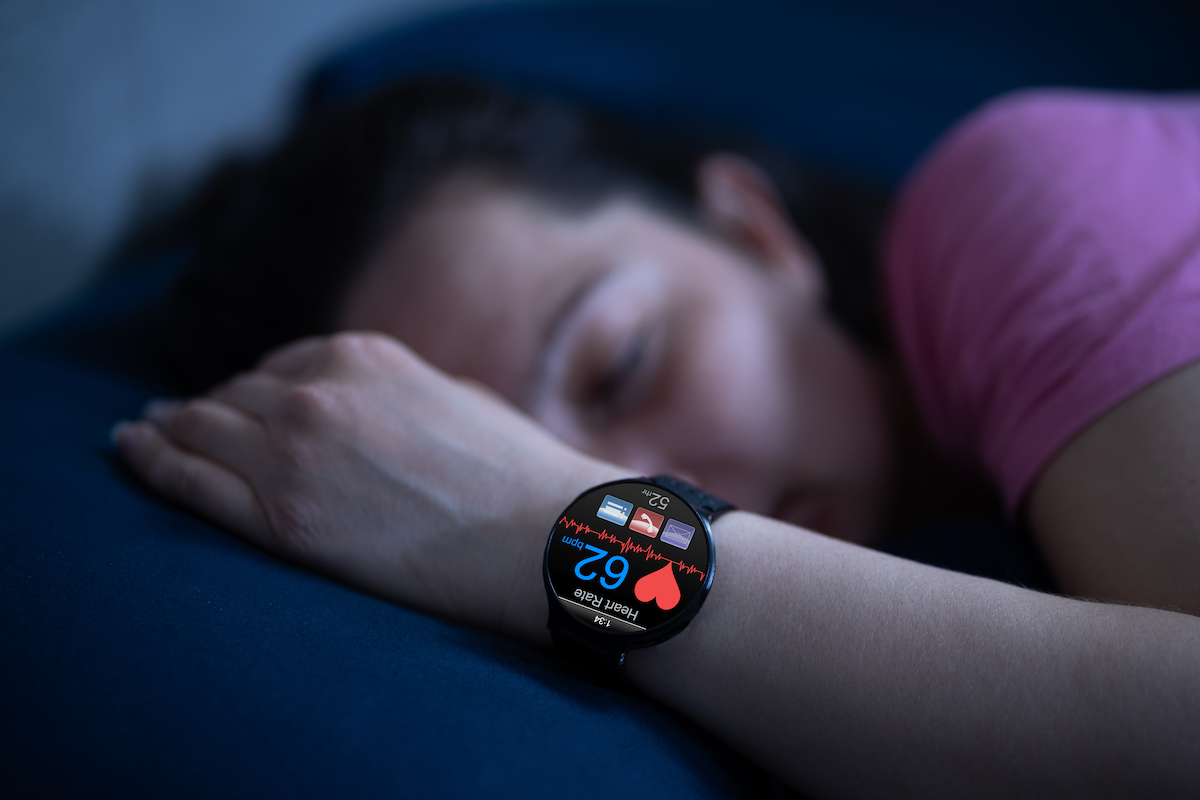
Tryon Medical Partners Gaston nurse practitioner Heather Robinson wasn’t wearing a smartwatch or fitness tracker when her heart started beating quickly. At the time, she was busy at the medical clinic where she was working, as the only clinician seeing a practice full of patients.
“I thought that maybe I was overly stressed or I drank too much coffee,” says Heather, who had experienced small heart palpitations before. “When I started feeling sudden pain in my jaw, I knew something was wrong.”

Heather’s team sprang into action, immediately hooking her up to an EKG (electrocardiogram), a machine that records the electrical signals in the heart at that exact moment in time. It showed that she was in atrial fibrillation (commonly abbreviated as AFib), a quivering and irregular beating of the heart that can lead to blood clots, stroke, heart failure or other heart-related complications. She was able to get treatment right away, but eventually did have a surgical procedure to stop the uneven electrical signals in her heart that were causing the palpitations.
Heather’s symptoms may have saved her life.
But it’s estimated that up to 40% of the 2.7 million people living with AFib in the United States show no symptoms.
For those patients, smartwatches and fitness trackers may be able to detect issues that might be missed otherwise. When configured properly, these devices can measure heart rate, and notify the wearer if their heart rate stays above or below a certain threshold. Smartwatches and fitness trackers can also detect irregular heart rates if the heart rate notifications are enabled.
“The idea that we can see a patient who discovers themselves having a fast heart rate, irregular heartbeat or palpitations from a watch is fascinating,” remarks Heather, who has noticed a discernible uptick in patients wanting to know what these results mean. “If they come in to see their clinician sooner and are diagnosed much faster, that’s a huge win.”
So what do you do if this happens to you?
Anytime you think you may be having a heart attack, or are experiencing chest pain, shortness of breath, weakness or lightheadedness, or pain or discomfort in your jaw or arms, seek emergency medical attention immediately. If you currently have a diagnosed heart issue that is being treated by a cardiologist, follow up with that clinician.
But if you have no history of heart problems and your smartwatch or fitness tracker notifies you of an issue, do you need to start shopping for a cardiologist?
Heather says it’s a good idea to start with your primary care clinician as soon as possible.
“A heart palpitation or a single episode of an irregular heartbeat can be an isolated event, so we want to have our legwork done before referring to a cardiologist,” Heather says, since palpitations or irregular heart beats may be the result of other health conditions.
For a patient with these symptoms, Heather starts with a thorough history and physical exam. Depending on the information provided, she may proceed with getting a more exact reading of the heartbeat over an extended period of time. The patient would wear a monitoring device that is placed on the upper left part of the chest anywhere from seven to 14 days. The monitor is then shipped to a cardiologist who reads the device and reports the results back to the Tryon Medical Partners Gaston team.
Heather estimates that roughly one-third of patients who have come to see her as a result of a smartwatch or fitness tracker notification needed a referral to a cardiologist after their heart monitor results.
For people like Heather with AFib, they are usually prescribed blood thinners, beta blockers or other interventions to prevent potentially fatal heart attacks and strokes.

“For those whose heart rate was irregular or elevated for another reason, this process saves the patient unnecessary worry, and the insurance company hundreds, if not thousands, of dollars,” says Heather.
Clinicians like Heather join Tryon Medical Partners because they believe in the power of the patient-clinician relationship. By spending time getting to know their patients at each visit, clinicians like Heather can often find ways to help patients resolve or manage their overall health without unnecessary referrals, which can lead to increased costs and longer wait times for specialists.
If you’re looking for reliable healthcare you can set your smartwatch by, learn more about Tryon Medical Partners and Tryon Medical Partners Gaston.

